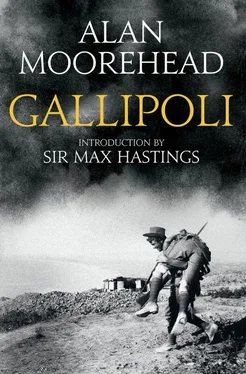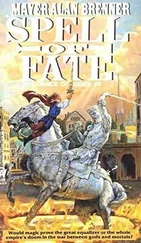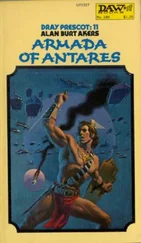‘This is not fair to you besides being extremely distasteful to me.
‘I am off to Scotland at once to avoid all questionings.
Yours truly,
Fisher.’
Churchill received this letter from his secretary as he was walking across the Horse Guards Parade later in the morning, and he did not take a serious view of the matter since Fisher had resigned or threatened to resign so many times before. The Admiral, however, was nowhere to be found, and Churchill went across to Downing Street to discuss the matter with the Prime Minister. Asquith’s first move was to write out an order to Fisher commanding him to return to his duty in the name of the King, and secretaries were sent out to scour the town until they found him. Some went to the main railway stations, others hunted through the Admiralty. Several hours elapsed, however, before the Admiral was found in a room in the Charing Cross hotel, and for a time he refused to come out. In the end he agreed that he would at least see the Prime Minister.
Lloyd George was in the entrance lobby of 10 Downing Street when Fisher arrived for this interview. ‘A combative grimness,’ Lloyd George says, ‘had taken the place of his usual genial greeting; the lower lip of his set mouth thrust forward, and the droop at the corner was more marked than usual. His curiously oriental features were more than ever those of a graven image in an eastern temple, with a sinister frown. “I have resigned,” was his greeting, and on my inquiring the reason he replied, “I can stand it no longer.” He then informed me that he was on his way to see the Prime Minister, having made up his mind to take no further part in the Dardanelles “foolishness”, and was off to Scotland that night.’
Fisher clearly was in a rage to have done with the formalities, and neither Asquith nor Churchill could move him.
In a last message to Churchill — and one can almost see the pen trembling in the Admiral’s hand — he wrote: ‘YOU ARE BENT ON FORCING THE DARDANELLES AND NOTHING WILL TURN YOU FROM IT — NOTHING. I know you so well… You will remain and I SHALL GO — it is better so.’ There followed his defiant final ultimatum to Asquith demanding, as a condition of his return, absolute control over the Navy and the removal of Churchill and all others who, he imagined, stood in his way. It was absurd, of course, even crazy, and it meant that the old man had to be removed from the scene as quickly as possible. A curt note from Asquith accepting his resignation ended his career.
In more ordinary times Churchill perhaps might have weathered Fisher’s departure, but too much was happening too quickly. The shell crisis alone was enough to bring the Government down, or at any rate to lead to its reorganization. In some vague way it had begun to seem that the Gallipoli campaign was responsible for all their troubles, and Churchill was regarded as the original author of it. He had urged it from the beginning. He had lost the ships. He was responsible for the disasters and delays in the Army’s landing. He was the amateur who had dared to fly in the face of the expert opinion of the Admirals — even Fisher, the greatest of them all. All this was wildly unfair. ‘It (Churchill’s removal from the Admiralty) was a cruel and unjust degradation,’ Lloyd George wrote. ‘The Dardanelles failure was due not so much to Mr. Churchill’s precipitancy as to Lord Kitchener’s and Mr. Asquith’s procrastination.’
Directly they had word of Fisher’s resignation Bonar Law and the Opposition leaders gave notice to Asquith that they would challenge the Government on the matter in the House of Commons, and Asquith at once entered into negotiations for a coalition. In the confused dealings of the next few days Churchill had no part at all; for a time his friends put up a show of a fight for him, but the Conservatives were absolutely determined to have him out. The new cabinet was finally announced on May 26. Balfour was to have the Admiralty with Sir Henry Jackson as his First Sea Lord. Jackson was almost as much an opponent of the Dardanelles as Fisher had been, and he later declared that he thought the forcing of the straits to be ‘a mad thing to do’. Churchill declined the Colonial Office, and there was some discussion about his taking over a command in the Army in France, but in the end he was given the minor office of Chancellor of the Duchy of Lancaster. It was by some way his heaviest fall in politics since he had first entered the House of Commons fifteen years before. However, he was given a seat in the newly-formed Dardanelles Committee, and although he had no power to take decisions it was understood that he was to have a watching brief on the operations at Gallipoli. On May 26 he left the Admiralty, and he did not return there until twenty-four years later at the outbreak of the second world war.
Ashmead-Bartlett, who returned home from the peninsula for a few days about this time, gives a vivid picture of Churchill and his state of mind. ‘I am much surprised,’ he wrote in his diary, ‘at the change in Winston Churchill. He looks years older, his face is pale, he seems very depressed and to feel keenly his retirement from the Admiralty… At dinner the conversation was more or less general, nothing was said about the Dardanelles, and Winston was very quiet. It was only towards the very end that he suddenly burst forth into a tremendous discourse on the Expedition and what might have been, addressed directly across the table in the form of a lecture to his mother, who listened most attentively. Winston seemed unconscious of the limited number of his audience, and continued quite heedless of those around him. He insisted over and over again that the battle of March 18th had never been fought to a finish, and, had it been, the Fleet must have got through the Narrows. This is the great obsession of his mind, and will ever remain so… ’
Of these events little or nothing was known at Gallipoli. From day to day Hamilton waited for an answer to his message to Kitchener asking for the reinforcement of another Army corps. But nothing came beyond a promise of one Lowland division which was to sail from England. There was, however, an echo of the hesitation and the confusion in Whitehall in a cable which Hamilton received from Kitchener on May 19. In it Kitchener spoke of his disappointment at the progress at Gallipoli. ‘A serious situation,’ he said, ‘is created by the present check, and the calls for large reinforcements and an additional amount of ammunition that we can ill spare from France.
‘From the standpoint of an early solution of our difficulties, your views, as stated, are not encouraging. The question whether we can long support two fields of operation draining on our resources requires grave consideration. I know that I can rely on you to do your utmost to bring the present unfortunate state of affairs in the Dardanelles to as early a conclusion as possible, so that any consideration of a withdrawal, with all its dangers in the East, may be prevented from entering the field of possible solutions.
‘When all the above is taken into consideration, I am somewhat surprised to see that the 4,500 which Maxwell can send you are apparently not required by you. With the aid of these I had hoped that you would have been in a position to press forward.’
Hamilton wrote in his diary: ‘I can only surmise that my request made to Maxwell that these 4,500 men should come to me as drafts for my skeleton units, instead of as a raw brigade, has twisted itself going down some official corridor into a story that I don’t want the men! K. tells me Egypt is mine and the fatness thereof; yet no sooner do I make the most modest suggestion concerning anything or anyone Egyptian than K. is got at and I find he is the Barmecide and I Schac’abac. [16] A reference to the Arabian Nights tale in which a series of empty dishes is served to a hungry man.
“How do you like your lentil soup?” says K. “Excellently well,” say I, “but devil a drop is in the plate!” I have got to enter the joke; that’s the long and short of it.”
Читать дальше












